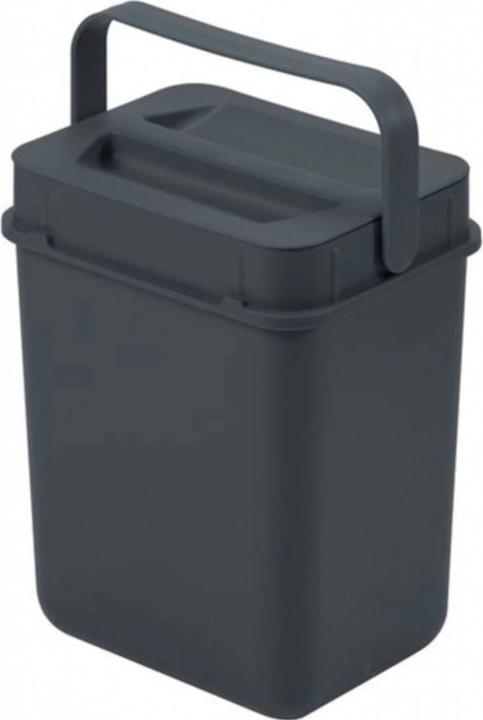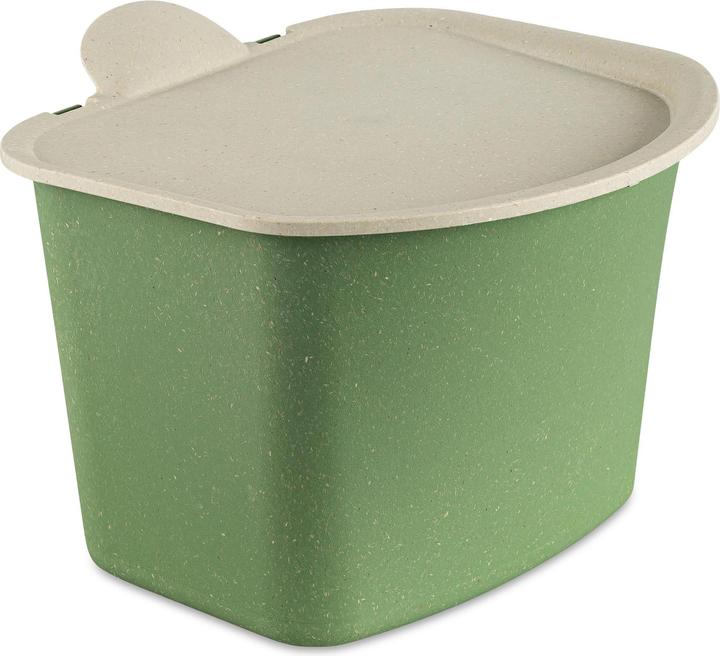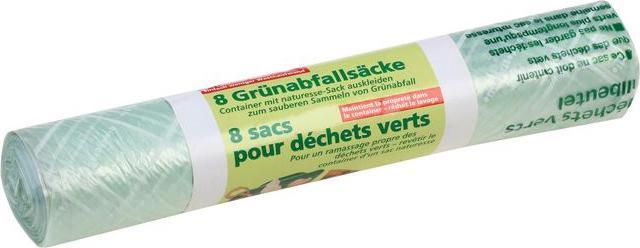

Why coffee grounds don’t belong in the drain
I’m too lazy to dispose of coffee grounds in the compost. I almost always flush them down the drain. My wife says I shouldn’t do that. Is she right?
Every couple’s sure to be familiar with those daily household debates. What belongs in the dishwasher and what doesn’t? Is it necessary to clean the bathroom as soon as the first hard water stains appear? Does it matter how I hang up the laundry? For a few weeks now, my wife and I have had a new question on our minds: is it OK to flush coffee grounds down the drain? Admittedly, I’m the one who’s usually too lazy to dispose of the coffee grounds in the compost.

Source: Martin Rupf
I usually dump the coffee grounds down the drain, which has been earning me increasingly frequent reprimands from my wife. «You’re not supposed to do that,» she tells me.
Says who? I want to investigate this – and, ideally, refute my wife’s claim. Who’ll be the referee? Christian Abegglen, head of the wastewater department of the Werdhölzi sewage treatment plant.
The expert says: «In general, solids don’t belong in wastewater»
The city of Zurich’s wastewater treatment plant purifies up to 6,000 litres of wastewater per second, making it the largest treatment plant in Switzerland. «Apart from toilet paper, waste doesn’t belong in the toilet,» says Abegglen. According to him , it’s quite costly to separate other waste from the wastewater. Still, coffee grounds aren’t quite as problematic as other substances, he says. «Wet wipes are a special case. Especially in wastewater pumps, they can form very unruly strings combined with grease, hair and faecal matter which clog the pumps and have to be laboriously removed by hand,» says Abegglen. Furthermore, no pesticides, large quantities of paint or expired medicines should be emptied down the drain or into the toilet. There’s something else water purification experts don’t like to see in wastewater: «Cat litter that’s disposed of in the toilet is also very troublesome, because it takes on a very unfavourable consistency when combined with water,» says Abegglen.
If you want to get an idea of what it takes for wastewater to be returned to the water circuit, check out this explanatory video by the Werdhölzi wastewater treatment plant (in German).
Do coffee grounds clean the drain?
Alright, so it’s better not to flush coffee grounds down the drain, but it’s not tragic in terms of water pollution if you do. But hold up – a quick online search reveals another reason why coffee grounds don’t belong in the drain. Namely, coffee grounds contain oil, which, over time, deposits on the walls of the pipes. This makes it all the more surprising that there’s a theory sporadically popping up online claiming coffee grounds help to clean your drain. But precisely the opposite is the case. Since coffee grounds readily combine with other fats that build up in kitchen drainage pipes, this can actually promote clogging.
If you want to fight such a blockage, you don’t necessarily have to reach for chemical cleaning agents. As my colleague Livia Gamper wrote in an article, you can also use baking soda to clean your drain. Or you can fight the blockage with compressed air.
Coffee grounds as a pesticide and fertiliser
OK, OK. My wife was right (yet again). Coffee grounds really do belong in the compost, where they even accelerate decomposition.
If I’m going to change my behaviour, I’m going to do it right. As it turns out, it’s actually a pity if coffee grounds are disposed of with green waste, since they’re also perfectly suitable as a pesticide or plant fertiliser (link in German). Many nutrients are retained in the coffee grounds even after brewing. They contain nitrogen in such a high concentration found in very few natural products. In addition, coffee grounds are rich in other macronutrients such as potassium, sulfur and phosphorus. Humic acids are also produced during the roasting of coffee beans, which attract beneficial insects such as earthworms.
From now on, I’ll collect the coffee grounds and dry them (this is important to do or mould will form quickly).

Source: Martin Rupf
Come spring, I’ll be using my coffee grounds as fertiliser. And who knows – maybe my never-ending Project Lawn will finally get into gear. But that’s another topic for another article.
Header image: Martin RupfHalf-Danish dad of two and third child of the family, mushroom picker, angler, dedicated public viewer and world champion of putting my foot in it.







